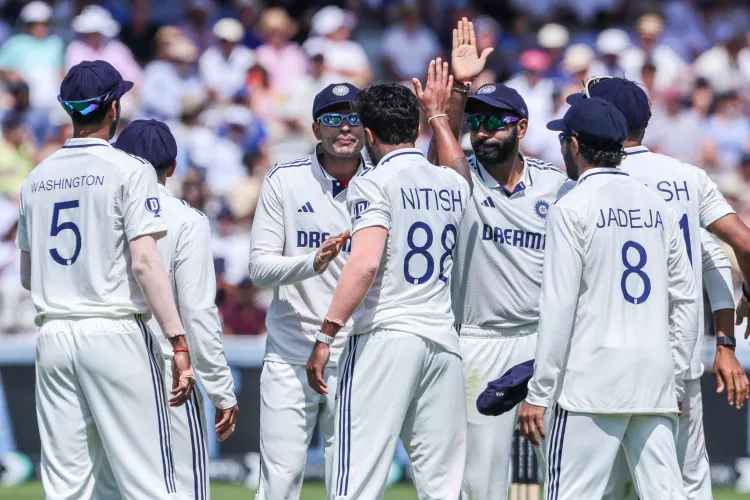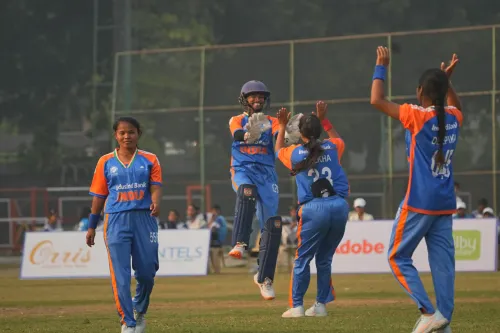Will the Dukes Ball Used in England-India Tests Undergo Examination?

Synopsis
Key Takeaways
- Dukes balls have been criticized for going soft too early.
- The manufacturer plans to inspect the balls used in the Tests.
- Quality issues could affect match outcomes significantly.
- Bowling effectiveness is compromised with a soft ball.
- Continued scrutiny on cricket equipment is essential.
London, July 18 (NationPress) In light of growing concerns regarding the balls becoming soft too quickly, the producer of the Dukes ball has announced plans to investigate the balls utilized in the initial three Tests between England and India, aiming to address the related challenges.
Since its inception in 1760, the Dukes balls have been celebrated for their quality. However, during the current Test series, they have been softening prematurely—well before the second new ball is introduced.
“We will take it away, inspect it, and initiate discussions with the tanner regarding all raw materials—everything. Our entire production process will be reviewed, and if we identify the need for adjustments or enhancements, we will act accordingly,” stated Dilip Jajodia, owner of British Cricket Balls Ltd, in an interview with BBC Sport.
The premature softening and shape loss of the ball, particularly after the first 30 overs, has made it increasingly challenging for bowlers from both teams to secure wickets. The quality concerns were highlighted during England's first innings in the third Test at Lord’s, where there were five ball changes, including one just 10.2 overs into day two.
“The unique nature of cricket means you cannot test the ball before it is used; if it fails, it does so in live play and under public scrutiny. We will strive to check every aspect of the ball-making process as thoroughly as possible,” Jajodia added.
Following a 22-run loss at Lord’s, the Shubman Gill-led India aims to rebound in the fourth Test against England in Manchester, commencing on July 23, with the series concluding at The Oval in London from July 31 to August 4.









